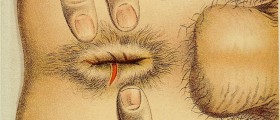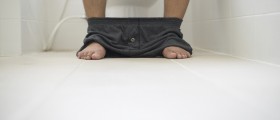The top of my butt crack itches horribly ( can hardly see anything there) and now the lips of my vagina itch also. I'm losing my mind. Because of crohns, I use wet wipes. Can this be the cause? Please help
Loading...
Itching in the anal and genital area can be caused by various factors, including infections, skin conditions, allergies, or irritation. Here are a few possibilities to consider:
-
Irritation from Wet Wipes: The use of wet wipes can sometimes cause irritation, especially if they contain fragrances, alcohol, or other harsh chemicals. Consider switching to unscented, hypoallergenic wipes or using a gentle, fragrance-free soap and water for cleansing.
-
Yeast Infection: Itching in the vaginal area may be a symptom of a yeast infection. Yeast infections can sometimes occur when the balance of yeast and bacteria in the vagina is disrupted. It's essential to consult a healthcare provider for proper diagnosis and treatment if you suspect a yeast infection.
-
Hemorrhoids: Itching in the anal area can also be caused by hemorrhoids, which are swollen blood vessels in the rectum or anus. These can be particularly uncomfortable and itchy.
-
Skin Conditions: Various skin conditions, such as eczema or psoriasis, can cause itching in the genital or anal area. These conditions may require specific treatments.
-
Allergies or Contact Dermatitis: You might be allergic to certain products, including wet wipes, laundry detergents, or fabric softeners, which can lead to itching. Avoiding irritants and allergens can help.
-
Hygiene Practices: Make sure you are practicing good hygiene, including wiping from front to back after using the toilet to prevent the spread of bacteria from the anal area to the vaginal area.
Given your history of Crohn's disease, it's essential to be cautious and seek prompt medical attention when experiencing new or worsening symptoms. Some gastrointestinal conditions can affect the skin and mucous membranes, so it's crucial to consult your healthcare provider or a dermatologist for a thorough evaluation. They can provide a proper diagnosis and recommend appropriate treatments or interventions tailored to your specific situation.
Loading...
















